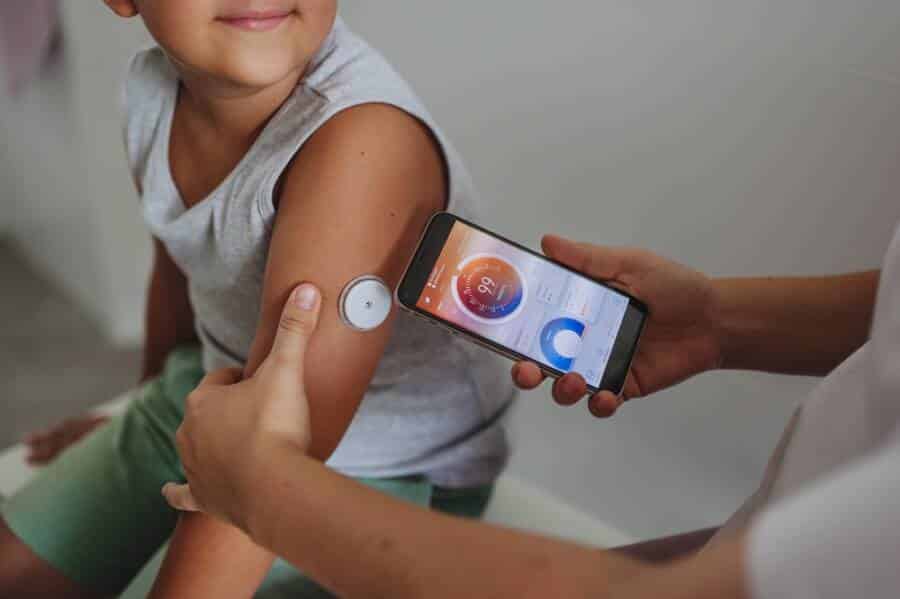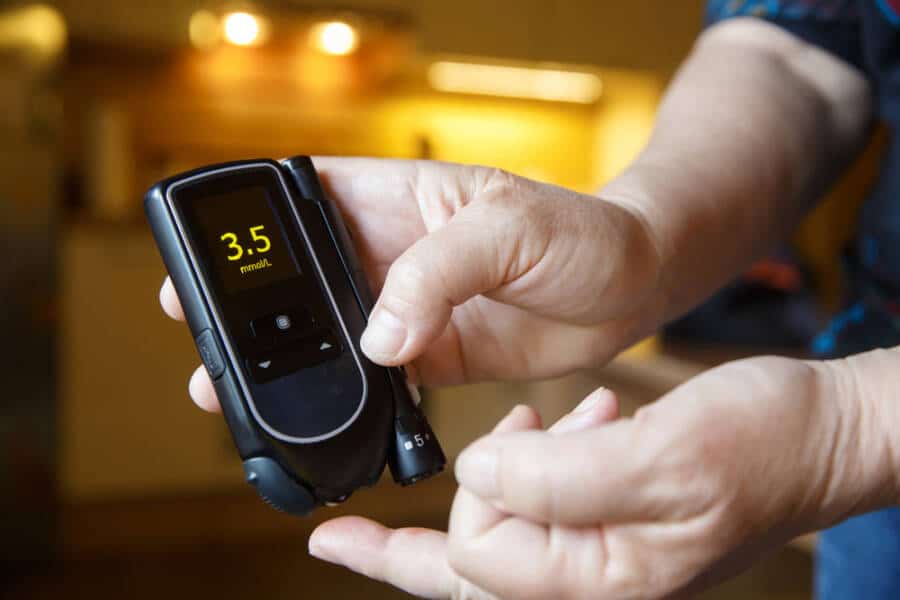If you have diabetes, then you must know how important it is to reduce blood sugar when it gets way too high, a phenomenon also known as hyperglycemia. However, blood sugar that’s way too low, or hypoglycemia, is just as important to avoid.
Hypoglycemia appears when the amount of blood glucose (meaning sugar in the blood) drops to a level that’s way too low to function properly. In most people, this is mainly defined as a blood sugar level at or even below 70 milligrams per deciliter (mg/dL).
Moreover, low blood sugar is more common among people with type 2 diabetes. Individuals with this condition score an average of 19 mild or even moderate episodes of hypoglycemia per year, and almost one severe episode per year on average. Low blood sugar was especially common among those who were taking insulin.
This drastic decrease in blood sugar levels might cause both short-term complications, such as confusion and dizziness, but also more serious issues, such as seizures, coma, and sometimes, although rarely, even death.
Hypoglycemia is generally the result of a too-high dose of insulin or a change in diet or exercise habits. In order to prevent hypoglycemia and its potentially dangerous side effects, you need to monitor your blood sugar levels and treat low blood sugar as soon as you can.
Also, you should pay attention to any telltale symptoms of dipping blood sugar levels, just to make sure yours are under control. Here’s what you need to pay attention to:

Ravenous hunger
If, out of the blue, you feel as if you are starving, your body might be trying to point out that there’s a drop of blood sugar in your body. You can easily manage your blood sugar by counting the carbohydrate intake and understanding the main differences between types and food sources.
The “correct” amount of carbs for each and every person depends on a wide variety of factors, so you should try to work with your dietitian or even certified diabetes care and education specialist to understand what are your best choices.
Feelings of anxiety
When your glucose levels fall way too low, your body automatically releases the hormones epinephrine (also known as adrenaline) and cortisol, which signals the liver to release more sugar into the blood, as noted by Harvard Health Publishing. This can lead to anxiety and its associated symptoms, like shakiness, sweating, and heart palpitations.
Restless nights
Nocturnal hypoglycemia, which mainly accounts for half of all low blood glucose episodes, might cause a number of sleep issues. Symptoms include night sweats, nightmares, episodes of waking all of a sudden and crying out, and also feelings of unrest and confusion upon waking up. A snack before bed could reduce the frequency and severity of sleep disturbances.
Shakes and tremors
Shakiness is a symptom that takes place when the autonomic nervous system is activated during hypoglycemia.
Emotional instability
Mood swings and sudden emotional episodes that aren’t typical of your normal behavior are among the neurological symptoms of hypoglycemia and could include irritability, stubbornness, and feelings of depression.
Sweating
Sweating is generally one of the first signs of hypoglycemia, and it can also be related to a spike in adrenaline, which could increase as glucose levels drop. As much as 84% of people with diabetes might experience sweating when they are hypoglycemic. Sweating is always present during low blood sugar episodes but should go away right after you take in some sugar.
Lightheadedness
When your blood sugar is too low, your brain tries to preserve as much energy as it can. You might feel lightheaded as a result, according to Harvard Health Publishing. If you experience this common symptom of hypoglycemia, you can treat it rapidly with 15 to 20g of fast-acting carbs, like juice. You can try to lie down, and if the lightheadedness keeps up for over 15 minutes, then it’s time to seek medical help.
Difficulty focusing
The brain relies on blood sugar for energy, so if there’s any drop in glucose, your brain might not function as it should. That can make it quite difficult to concentrate on one thing at a time. The good news is that there doesn’t seem to be any long-term brain damage caused by moderate hypoglycemia episodes.
Vision issues
If you suddenly start to experience vision issues, a drop in blood sugar could be the cause for that. According to a survey of 107 people with diabetes, blurred vision was one of the most common eye-related issues (affecting no less than 73 percent of study participants) followed by dimness in vision (around 45 percent) and black spots (37 percent).
Slurred speech and clumsiness
Did you know that a sugar-starved brain can change the way you sound? So yes, it wasn’t in your head. Slurred speech is one of the most common symptoms associated with blood sugar levels that drop below 40 mg/dL. Combined with clumsiness, which is another sign of low blood sugar, you could seem as though you’ve had a few too many cocktails, even if you haven’t touched a drop.
Can you sabotage your insulin therapy?
For many people out there with type 2 diabetes, insulin therapy is essential. However, there can be serious consequences for those whose insulin isn’t working as it should. In type 2 diabetes patients, the pancreas doesn’t make enough insulin and the body doesn’t respond well to the insulin it produces.
Injecting insulin could help the body use glucose in a better way or simply store it for later use, keeping your blood sugar in a healthy range and helping prevent serious health issues. However, is there a way in which you can sabotage it?

Forgetting blood sugar checks
Checking your blood sugar levels constantly helps you stay tuned in to how your body is responding to medications, food, and lifestyle habits. It can also help you and your doctor determine the proper amount of basal and bolus insulin to take.
Fasting blood sugar levels also reflect how basal insulin works in the background, as pre-meal and evening blood sugar levels are a much better barometer of how the bolus insulin dosing matches up with your food and carbs intake.
Missing insulin doses
If you suffer from type 2 diabetes and miss a dose of basal or bolus insulin, your blood sugar might rise. It can be quite tough to always remember to take your insulin, especially when you’re too busy at work or school. However, it’s even more important. Try to make a priority out of it.
As basal insulin is generally taken only once a day, pick a time that works for you, such as right after waking up in the morning, and make it a part of your routine. Keep your insulin supplies next to the alarm clock, among your makeup supplies, or even next to your shaving cream: wherever you will see it and won’t ignore it.
Skipping meals
There are many different types of insulin to treat diabetes. If you take rapid-acting bolus insulin and forget to eat, or even eat less than you thought you would, your blood sugar levels might decrease in a dangerous manner. Even if rapid insulin should be taken right before meals if someone is not sure when or how much they will eat, it could be safer to wait a bit after eating to take the rapid insulin.
If you found this article useful, we also recommend checking: High Cortisol Levels: 12 Worrying Signs and What to Do About It













